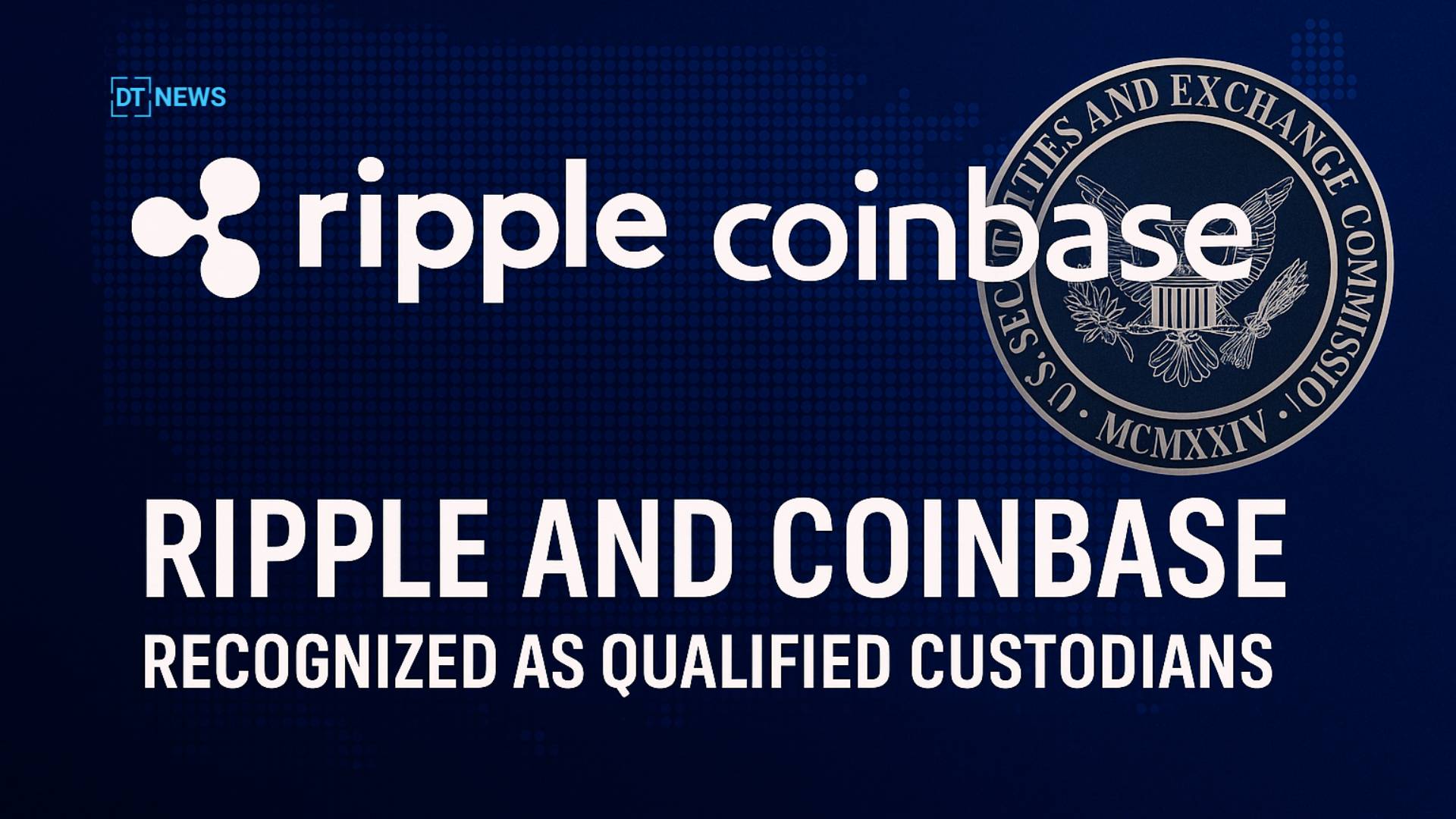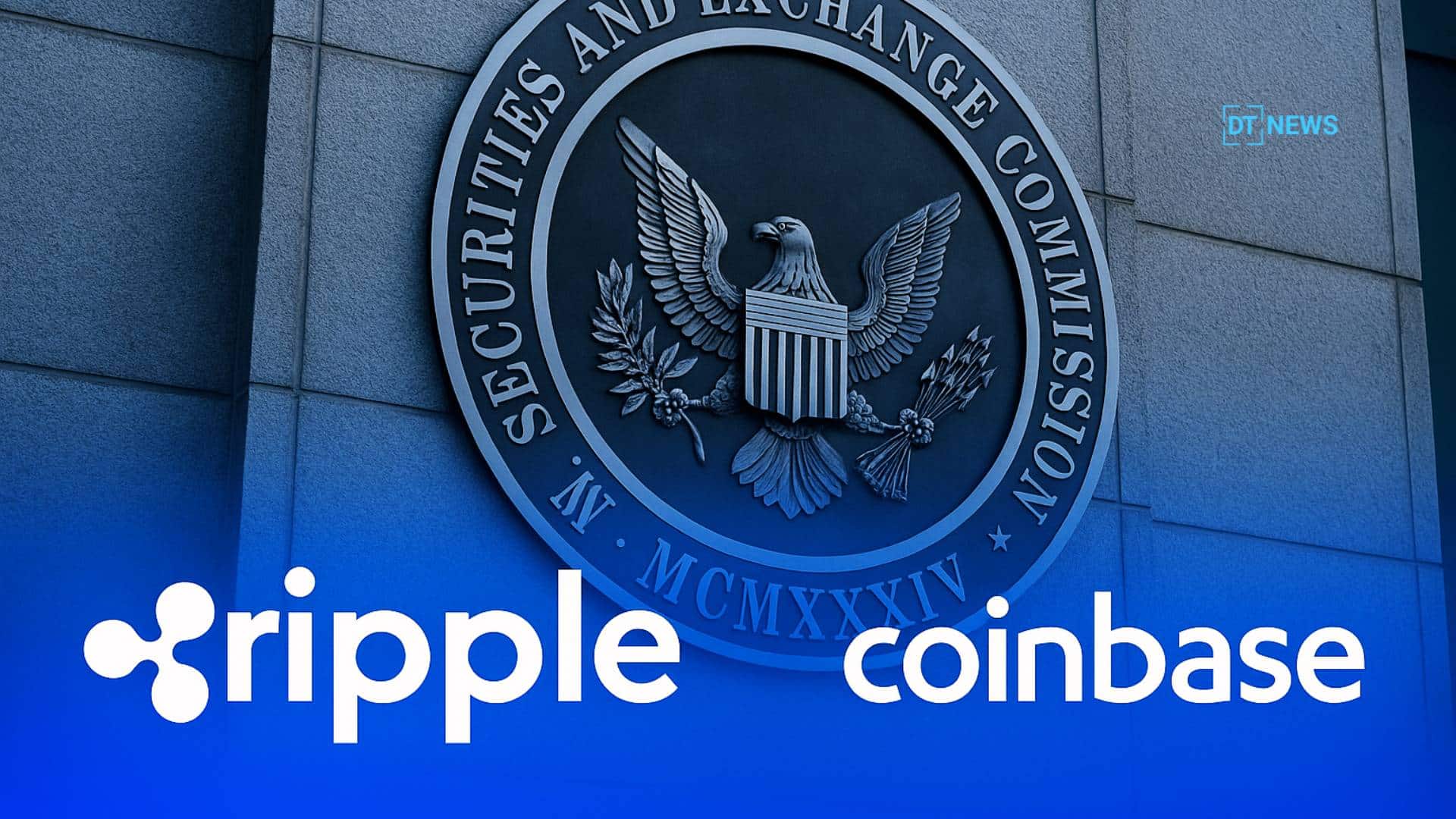SEC Brings Clarity to Custody Rules
The U.S. securities watchdog has delivered long-awaited clarity to the digital asset sector. According to new staff guidance issued at the end of September, Ripple and Coinbase, along with other state-chartered trust companies, are now recognized as qualified custodians for cryptocurrencies.
For years, questions lingered over whether these entities could meet the same standards as banks when holding client assets. This new interpretation helps remove uncertainty that had kept many institutional investors cautious. By drawing a line under the debate, regulators have opened a fresh chapter for custody in crypto markets.
Ripple and Coinbase at the Center of the Shift
The decision shines a spotlight on Ripple and Coinbase, which have already built extensive custody infrastructure. Ripple’s Standard Custody & Trust and Coinbase Custody Trust both meet the SEC’s outlined criteria, which include audited reporting, independent internal controls, and clear asset segregation.
Ripple’s chief executive Brad Garlinghouse reacted on X, saying, “For too long, custody rules slowed institutional adoption. Today’s guidance finally clears the fog.”. His comments reflect a mood of relief among executives who have spent years navigating murky rules.
The changes also give institutions more confidence that their assets won’t be mingled or reused without explicit approval. In effect, the SEC has put Ripple and Coinbase on the same compliance footing as long-established custodians in traditional finance.

Mixed Reactions Inside the Commission
While industry leaders welcomed the move, regulators themselves appear split. Commissioner Hester Peirce praised the staff guidance, arguing that it shows regulators can “foster innovation while safeguarding investors.”
But Commissioner Caroline Crenshaw raised a caution flag, warning that relying on state-level oversight could create what she called a “regulatory patchwork” that complicates enforcement.
These differing views underline the political tightrope regulators are walking. For now, Ripple and Coinbase emerge as winners, but critics stress that future leadership could reinterpret or even roll back the guidance. The fact that this is staff-level advice, not a binding rule, leaves room for uncertainty down the road.
Why It Matters for Institutional Adoption
For the market, the implications are immediate. Many investment advisers and funds that hesitated to enter crypto because of unclear custody rules may now feel reassured. Analysts suggest this could accelerate the launch of more crypto-focused ETFs and regulated funds, creating fresh liquidity.
A New York strategist put it plainly: “Without clear custody, you don’t have trust. Without trust, institutions stay out. This guidance changes the math.” The comment highlights how central custody is to the broader adoption story.
As competition heats up, Ripple and Coinbase gain a first-mover advantage, but traditional custodians in banking may be forced to catch up. For now, though, these two names sit at the heart of a new phase in crypto’s evolution.
Conclusion
The SEC’s guidance is more than a technical adjustment; it marks a turning point for the crypto industry. By confirming that Ripple and Coinbase can operate as qualified custodians, regulators have lowered a key barrier that held institutions back.
While debates remain about oversight consistency, the shift gives the market a stronger foundation. For investors and institutions alike, this moment signals that crypto custody is no longer in the shadows—it is stepping into the regulated mainstream, with Ripple and Coinbase leading the way.
FAQs
1. What did the SEC guidance decide?
It confirmed that certain state-chartered trusts, including Ripple and Coinbase entities, qualify as custodians for digital assets.
2. Why does this matter for investors?
It creates a safer, regulated pathway for institutions to hold crypto through trusted custodians.
3. Is this a permanent rule?
No, it’s staff guidance. While influential, it can be revisited or updated by future leadership.
4. Which firms benefit most right now?
Ripple and Coinbase stand out, along with BitGo, as leading custodians ready to scale services for institutions.
Glossary
Qualified Custodian: A financial institution recognized as legally fit to safeguard client assets.
Custody Rule: An SEC regulation requiring advisers to use approved custodians for client funds.
Segregation of Assets: Practice of keeping client holdings separate from the custodian’s own accounts.
State Trust Company: A trust firm licensed at the state level to offer custody and fiduciary services.
Institutional Investor: Large financial entities like funds, pension managers, and banks.
Investor Confidence: The level of trust investors place in markets, rules, and infrastructure.






































